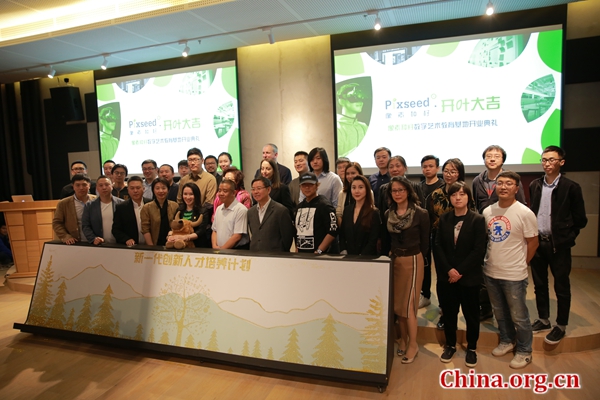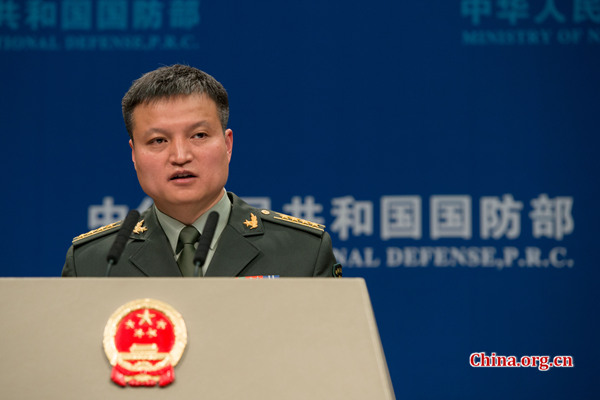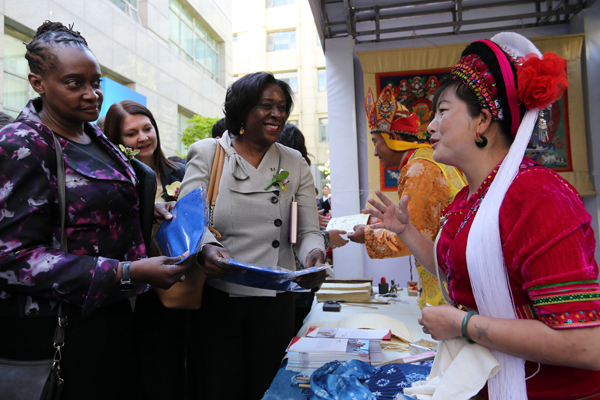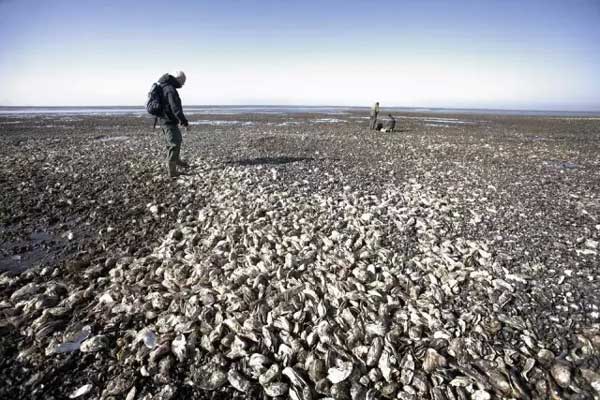MOD apologies for poster error
|
|
|
The poster that contains wrong elements on the MOD’s official Weibo account. [Photo/Weibo.com] |
China’s Ministry of National Defense (MOD) made a formal apology on April 27 for using an illustration in a recent post of its official Weibo account that contained major errors.
The MOD spokesperson, Senior Colonel Yang Yujun, during a regular press briefing on April 27, said the error was a result of negligence by the editors.
“We have noticed too that the picture wasn’t correct and that caused netizen criticism. Our editors made the error but their superiors also share the responsibility,” he said.
In the post dated April 23, the 68th anniversary of the PLA (People’s Liberation Army) Navy, which is also known as PLA Navy Day, the country’s first-ever aircraft carrier CNS Liaoning was shown cruising accompanied by two warships. Also in the picture were three jet fighters flying in the sky and another one taking off from the carrier’s flight deck.
Keen military fans among Weibo users spotted almost instantly that the two warships were USS San Antonio amphibious transport docks (also known as landing platform docks), the three jet fighters were J-10 of the PLA Air Force and the one taking off was a Russian MiG-29 (some said it was a Su-35), casting a shadow of a passenger jet on the carrier’s flight deck.
In other words, the poster apparently having been edited using Photoshop software, contained two U.S. Navy vessels, one Russian military aircraft and three Chinese air force aircraft – the CNS Liaoning being the only correct element in the picture.
Most comments questioned the editors’ professional aptitude and some joked that the poster’s quality was “at most that from a roadside print shop.”
The spokesperson said many friends had suggested immediately delete the poster, or at least turning off the comment function on the page; however, the MOD purposely decided to keep the erroneous picture on the Internet as “a gesture to show sincerity in the face of good-willed criticism.”
“We believe that the harsh criticisms from [netizens] reflected their deep love and heartfelt support to us,” said Yang. “Leaving the picture along with the appended comments was an alert for us. It serves as a constant reminder to us about working hard and to keep progressing.
“On behalf of our editing team, we offer our sincere apology as well as gratitude to people who pay attention to us, care about us and support us”.
As of 11:00 PM on April 27, the Weibo post has received 3,477 likes, 2,460 comments, and has been retweeted 2,945 times.




